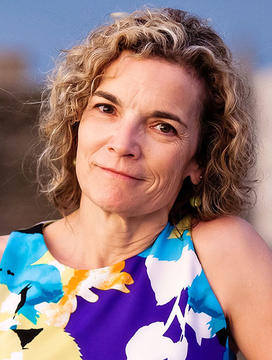
But out of one of the most depressing incidents in this litany of censorship by intimidation, my fellow Princetonians have provided a glimmer of hope.
After Philippine authorities arrested Maria Ressa ’86, the founding editor of a news site that has become known for its critical coverage of that country’s strongman president, I thought Princeton’s journalism community needed to speak out.
I reached out to Mike McCurry ’76. He’s a former White House press secretary; I’m a former Washington-based reporter. Now we’re both professors.
When Mike and I were on campus, we belonged to rival student press organizations — the University Press Club (him) and The Daily Princetonian (me). Later, we both were active on their respective graduate boards.
So, we have what used to be called Rolodexes. We started to use them. The results astonished even us.
Within 72 hours, we had collected more than 100 signatures for a statement in support of Ressa. For a school that only recently beefed up its journalism offerings to a certificate program, Princeton has quite the ink-stained affinity group: Our list of signators included several former White House officials, a one-time governor of the Federal Reserve, the top editors of three major U.S. publications and one of the founders of the Human Genome Project.
READ MORE
Defending Free SpeechA letter from the March 20, 2019, issue
We bought a full-page ad to place our statement in The Daily Princetonian and have purchased another in the March 20 issue of PAW (hat tip to Knight Foundation, whose funds for my endowed chair at the Missouri School of Journalism I tapped to support free speech and local journalism all at once). Members of the Prince managing board joined us with an editorial of their own. Seven decades of Princetonians stood in solidarity with Ressa, and more continue to sign our document.
The breadth and depth of this support and the alacrity with which it came together told me two things:
1. People get it
People who shouldn’t have time to read their emails, much less answer them, wrote to thank us for giving them the opportunity to speak out. That told me that even those who aren’t journalists feel a need to sound the alarm.
Three decades after the fall of the Berlin Wall led some of us to declare total victory for freedom, democratic values are under threat all around the globe. Endangered journalists like Ressa are the canaries down the mineshaft; the noxious gases that are making it dangerous for reporters to work even in well-established democracies like our own should alarm every citizen who values her own freedom.
As Ressa put it in an email thanking us for our effort: “Everything feels so fragile now.”
2. #JournalismMatters
Not every one of the erstwhile Princeton student journalists who signed our statement for Ressa went on to work in newsrooms.
But the fact that so many of them accomplished so much in their disparate careers speaks volumes about the value of what they learned as cub reporters: critical thinking, an ability to evaluate sources, a willingness to question authority.
In a digital age where we all swim in a sea of information, learning to think like journalists do — skeptically — would be good for everyone. Media literacy needs to be incorporated into those civics classes our schools should start offering again.
There’s a reason journalism is protected under our Constitution’s very first amendment: freedom of speech and freedom of thought are what makes America — and all nations that embrace those values — truly great. Preserving them is in the interest of every citizen. Not just journalists.









No responses yet